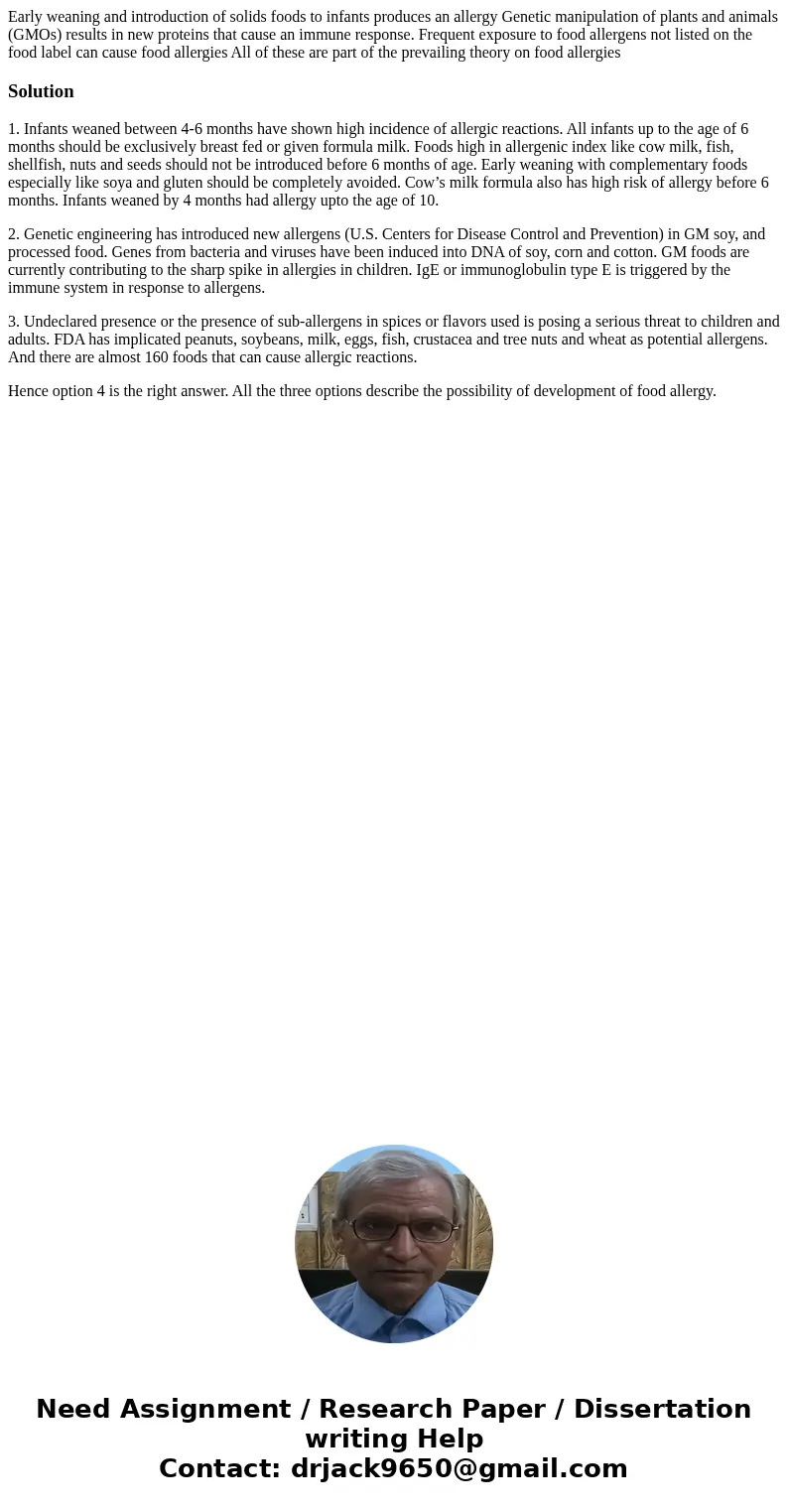Early weaning and introduction of solids foods to infants pr
Solution
1. Infants weaned between 4-6 months have shown high incidence of allergic reactions. All infants up to the age of 6 months should be exclusively breast fed or given formula milk. Foods high in allergenic index like cow milk, fish, shellfish, nuts and seeds should not be introduced before 6 months of age. Early weaning with complementary foods especially like soya and gluten should be completely avoided. Cow’s milk formula also has high risk of allergy before 6 months. Infants weaned by 4 months had allergy upto the age of 10.
2. Genetic engineering has introduced new allergens (U.S. Centers for Disease Control and Prevention) in GM soy, and processed food. Genes from bacteria and viruses have been induced into DNA of soy, corn and cotton. GM foods are currently contributing to the sharp spike in allergies in children. IgE or immunoglobulin type E is triggered by the immune system in response to allergens.
3. Undeclared presence or the presence of sub-allergens in spices or flavors used is posing a serious threat to children and adults. FDA has implicated peanuts, soybeans, milk, eggs, fish, crustacea and tree nuts and wheat as potential allergens. And there are almost 160 foods that can cause allergic reactions.
Hence option 4 is the right answer. All the three options describe the possibility of development of food allergy.

 Homework Sourse
Homework Sourse